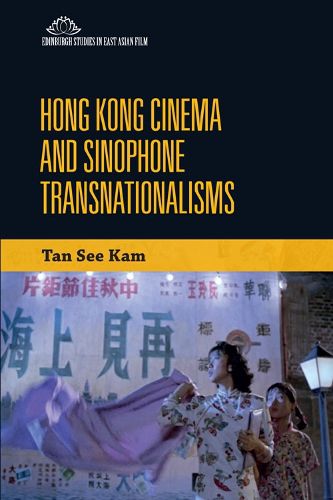Readings Newsletter
Become a Readings Member to make your shopping experience even easier.
Sign in or sign up for free!
You’re not far away from qualifying for FREE standard shipping within Australia
You’ve qualified for FREE standard shipping within Australia
The cart is loading…






Hong Kong Cinema and Sinophone Transnationalisms explores the intricate complexity of selected films and film-making practices from 1930s Hong Kong (and Shanghai) to the later 'new wave' phenomenon of the 1980s. The result is a Sinophone cinema that created some very different ways of understanding 'China' and 'Chineseness', developing their own 'cosmopolitan dreaming' within the cultural and economic changes of those times. Exploring sinification and its multiple manifestations in film, the book examines cinematic genres including Huangmei Opera films, qiqing (strange or queer romance) films, fanchuaners (professional cross-sex performers) in film, Hong Kong's Bond Movies (bangpian), erotic (fengyue) films, and New Wave Hong Kong cinema. In doing so, this book lays fruitful foundations for further understanding the development and changing faces of Hong Kong films and sinophone transnationalism in the even more complex and changing times of today.
$9.00 standard shipping within Australia
FREE standard shipping within Australia for orders over $100.00
Express & International shipping calculated at checkout
Hong Kong Cinema and Sinophone Transnationalisms explores the intricate complexity of selected films and film-making practices from 1930s Hong Kong (and Shanghai) to the later 'new wave' phenomenon of the 1980s. The result is a Sinophone cinema that created some very different ways of understanding 'China' and 'Chineseness', developing their own 'cosmopolitan dreaming' within the cultural and economic changes of those times. Exploring sinification and its multiple manifestations in film, the book examines cinematic genres including Huangmei Opera films, qiqing (strange or queer romance) films, fanchuaners (professional cross-sex performers) in film, Hong Kong's Bond Movies (bangpian), erotic (fengyue) films, and New Wave Hong Kong cinema. In doing so, this book lays fruitful foundations for further understanding the development and changing faces of Hong Kong films and sinophone transnationalism in the even more complex and changing times of today.